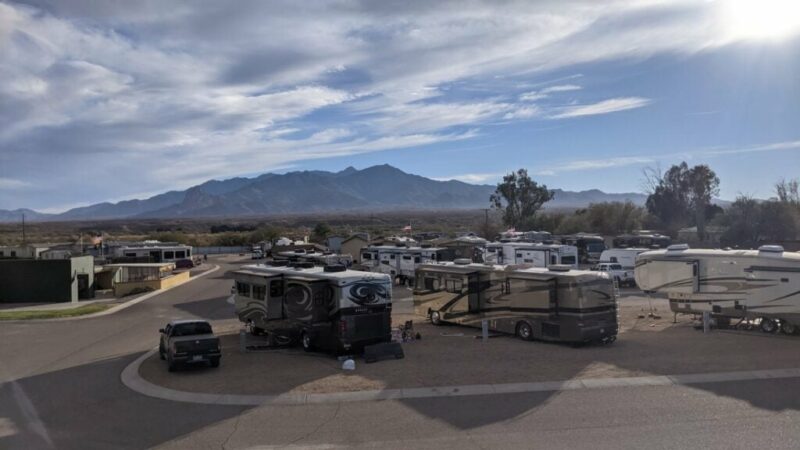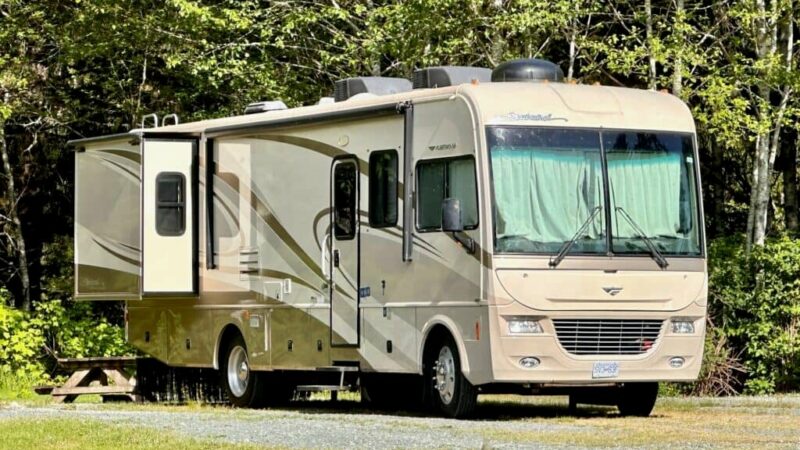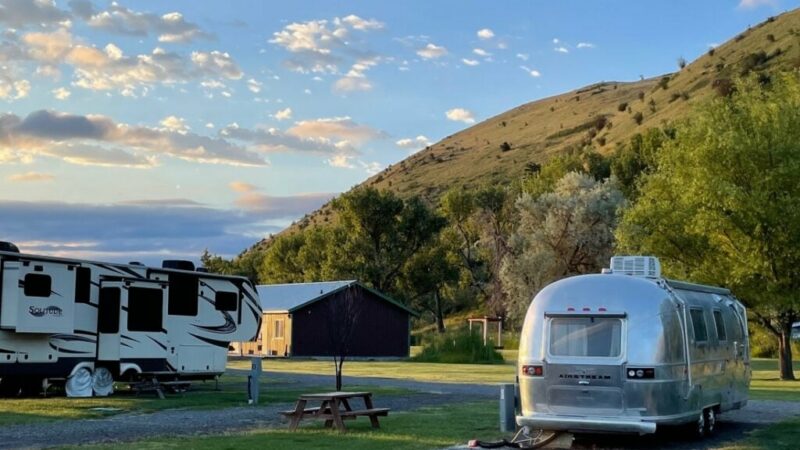A Guide To Financing An RV As A Primary Residence

Generally, you’ll declare your RV as a primary residence when you get financing from a dealership or other lender
How To Finance An RV As A Primary Residence
When you buy an RV, one of the main ways you can pay for it is with an RV loan. But if you’ll be living in it full time, one option is financing an RV as a primary residence. Here’s how!
How do you declare an RV as your primary residence?
If you declare your RV as your primary residence, you’ll be able to deduct your loan interest on your taxes, among other benefits. But there are some requirements that not all RVs will meet. And even if you do qualify, there are some things to keep in mind before taking the plunge.
So, how does financing an RV for full-time living work? Is financing your RV as a primary residence right for you?
Luckily for RVers, the IRS doesn’t have a ton of requirements for your primary residence. To qualify, you’ll only need a:
- Functioning toilet
- Kitchen area
- Sleeping area
In fact, the IRS happily accepts plenty of nontraditional homes as primary residences, such as houseboats.
Most RVs will easily meet the requirements, but some rigs, particularly DIY converted vans that don’t have a bathroom, may have trouble.
In order to get the process started, you’ll need to inform your lender that you’re financing your RV as your primary home. Keep in mind you can only declare one primary residence at a time.
As long as your RV meets the requirements for a residence and your credit score is good (at least 700), you shouldn’t have too much trouble securing full-time RV financing. However, some lenders are reluctant to finance RVs, so you may need to do some shopping around.
When financing an RV as your primary residence, your RV loan will generally need to be a secured loan. That means that your RV is the collateral for the loan and if you fail to pay, your RV will be repossessed.
Another issue is if the place you live allows RVs to be registered as a dwelling. While federal laws are lax about this, local laws frequently aren’t. Different areas will have different rules on what qualifies, so be sure to check the law for your state and local area.
If your RV doesn’t qualify as a dwelling, you may be able to register your RV as an accessory dwelling unit (ADU).
Most commonly, this classification is used for smaller, secondary living structures alongside a primary residence. In many cases where an RV can’t be considered a normal dwelling, it might meet the requirements to be an ADU. However, this isn’t always an option either, so you should check the rules for ADUs in your area first.
What are the impacts of financing an RV as a primary residence?
There are many impacts to financing your RV as a primary residence, but the biggest is on your taxes.
Taxes
If your RV is your primary residence and you have a secured loan, you can deduct the interest from your taxes just like with a mortgage. This is usually a significant amount, and combined with other deductible expenses, this can help you pay less on your taxes.
Common deductible expenses include:
- Sales taxes
- Insurance premiums
- Retirement contributions
If you run a business out of your RV, you may qualify for certain deductions as well.
If you don’t have enough deductions to beat the standard deduction, then it’s not worth itemizing your taxes. So, you may want to meet with a tax professional or do the calculations yourself to see if this is the right option for you.
Better loan rates
Another perk is that many lenders, such as Good Sam, offer better loan rates for full-time RV financing. That means having an RV as your primary residence can save you on your RV loan’s interest.
Higher insurance costs
However, when financing an RV as a primary residence, you’ll likely face higher insurance costs. For one, living in your RV full time exposes you to greater liability, so you’ll want a more comprehensive policy. On top of that, your lender will likely require you to have a certain level of coverage.
Loan repayment terms
Another consideration is the loan repayment term. When financing an RV as a primary residence, repayment terms are commonly 10 to 20 years. If you have a loan with an especially long repayment term, you could end up paying a ton in interest over the years.
RVs also don’t typically hold their value as well as a typical home. So, the sale of your RV won’t likely recoup all those extra costs. Plus you can’t typically borrow against the value of your RV, unlike with home equity loans or lines of credit.
Should you finance an RV as a primary residence?
There are a number of great reasons for financing an RV as a primary residence, but it’s not for everybody. When deciding if it’s right for you, there are a few things to ask yourself first.
Are you still paying a mortgage?
You can only have one primary residence at a time, and the IRS generally expects it to be where you spend most of the year.
If you own a home and don’t plan to sell it when you go full-time, you might face some issues. In particular, if you still have a mortgage, you’ll no longer be able to declare the interest on your taxes. Because of these and other impacts of going full-time, you should consider your situation before taking the plunge.
If it’s not right for you, another option is declaring your RV as a second home. In this case, you’ll still be able to deduct interest on the RV loan, without losing the deduction for your mortgage.
Will financing an RV as a primary residence save you on taxes?
The interest on your RV loan can be a significant amount, but you’re not likely to beat the standard deduction with that alone.
As of 2022, the standard deduction is $12,950 for single taxpayers and $25,900 for married couples. For most people, this is a better option than itemization.
Unless you have more qualifying expenses, you may be better off taking the standard deduction. And if that’s the case, financing an RV as a primary residence won’t have much benefit for you.
Do you have good enough credit?
RV loans are risky for lenders, and qualifying for one can be difficult. You’ll typically need a higher credit score than you’d need for a typical auto loan. A credit score of at least 700 is recommended. If your score is lower than that, you’ll have a hard time getting a loan, although finding RV financing with bad credit is possible.
Lenders will also want to see a low debt-to-income ratio before they offer you full-time RV financing. You’ll typically want a 40% or less debt to income ratio to qualify.
If you don’t meet these requirements, you might have a hard time financing an RV for full-time living.
Now you know all about financing an RV as a primary residence
Financing an RV as a primary residence isn’t right for everyone. But, particularly if deducting the loan interest helps you beat the standard deduction on your taxes, it can be a great idea.
Financing an RV for full-time living can be complicated. But once you’ve got it all figured out, the freedom of your full-time RV lifestyle will be hard to beat!
Forums such as iRV2.com and blog sites like RV LIFE, Do It Yourself RV, and Camper Report provide all the information you need to enjoy your RV. You’ll also find brand-specific information on additional forums like Air Forums, Forest River Forums, and Jayco Owners Forum.
Related articles:
The post A Guide To Financing An RV As A Primary Residence appeared first on RV LIFE.
Source: https://rvlife.com/financing-an-rv-as-a-primary-residence/






